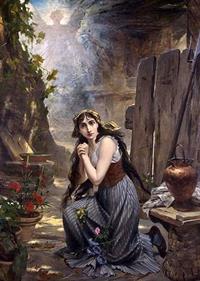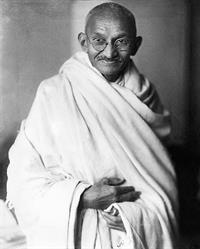
PUMPA - SMART LEARNING
எங்கள் ஆசிரியர்களுடன் 1-ஆன்-1 ஆலோசனை நேரத்தைப் பெறுங்கள். டாப்பர் ஆவதற்கு நாங்கள் பயிற்சி அளிப்போம்
Book Free DemoThe lesson "A Birthday Letter" was written by Jawaharlal Nehru. Nehru started writing letters to his young daughter, Indira, in the summer of 1928. He wrote a birthday letter to his daughter from Naini's Central Prison on October 26, 1930. The letter contained his understanding of the world which he wished to pass on to his daughter. Even in prison, he wanted to ensure that his child was not devoid of her father's teachings.
The lesson opens with Jawaharlal Nehru addressing his daughter as "My dear Indira". In the letter, he said that Indira was in the habit of receiving gifts and blessings on her birthdays. She would be showered with blessings and greetings in equal measure. He asked what present he could send from the Naini Prison. He claimed that his gifts were mental or spiritual rather than materialistic. Even the high walls of the prison couldn't stop the blessings he sent for his daughter.
The lesson opens with Jawaharlal Nehru addressing his daughter as "My dear Indira". In the letter, he said that Indira was in the habit of receiving gifts and blessings on her birthdays. She would be showered with blessings and greetings in equal measure. He asked what present he could send from the Naini Prison. He claimed that his gifts were mental or spiritual rather than materialistic. Even the high walls of the prison couldn't stop the blessings he sent for his daughter.

Nehru's letter to his daughter
Nehru went on to say that he disliked giving advice and lecturing to others. He claimed that his daughter knew about it very well. He always believed that providing counsel or preaching was not the best way to figure out what was right and wrong, what should be done and what should not be done. According to him, things can be solved if people talk and discuss them. He also stated that sometimes, during a talk or discussion, a piece of truth emerges out.
Nehru mentioned in his letter that his conversations with Indira were delightful. They have discussed various topics like languages, trade, history, geography, science, epics and evolution. However, he stated that the universe is vast, and beyond the world lie other beautiful and strange worlds. He said they should not be bored or believe that they have learned everything and become intelligent by grasping everything. There were yet more to learn in the huge world.
Nehru went on to say that he disliked giving advice and lecturing to others. He claimed that his daughter knew about it very well. He always believed that providing counsel or preaching was not the best way to figure out what was right and wrong, what should be done and what should not be done. According to him, things can be solved if people talk and discuss them. He also stated that sometimes, during a talk or discussion, a piece of truth emerges out.
Nehru mentioned in his letter that his conversations with Indira were delightful. They have discussed various topics like languages, trade, history, geography, science, epics and evolution. However, he stated that the universe is vast, and beyond the world lie other beautiful and strange worlds. He said they should not be bored or believe that they have learned everything and become intelligent by grasping everything. There were yet more to learn in the huge world.
Nehru then asked what he could do then apart from writing letters. As he was in prison, he could only write letters to his daughter. He claims that a letter cannot take the place of a conversation. Even though it is a one-sided affair, writing a letter is a good thing. In this letter, the term "one-sided affair" is used to characterise one person's opinions or sentiments. He also advised his daughter to think over his suggestion. If she keenly observed that, she would understand that the letter appeared to be written in the form of a conversation.
Nehru said that they have learnt about significant periods in the lives of nations and great men and women in history. He then questioned if she remembered how interested she was when reading Joan of Arc's story (Joan of Arc was a French religious leader who helped her country during the French revolution). After telling about her, Nehru stated that his daughter aspired to be a brave fighter like Joan of Arc.
Nehru said that they have learnt about significant periods in the lives of nations and great men and women in history. He then questioned if she remembered how interested she was when reading Joan of Arc's story (Joan of Arc was a French religious leader who helped her country during the French revolution). After telling about her, Nehru stated that his daughter aspired to be a brave fighter like Joan of Arc.

Joan of Arc*
Nehru then went on to say that ordinary men and women are not known for their bravery. They just think about their meals, their children, their problems at home, and what they enjoy. They never worry about anything else, and they are solely concerned with their own lives. After recounting the stories of ordinary men and women, Nehru stated that when the time comes (to prove themselves), people get attracted by a noble cause. Then he continues to state that when people work for a good cause, history will help even the most ordinary people become heroes.
Nehru then says that great leaders possess a great quality that inspires a crowd and pushes them to do great things. He claimed that a great leader (Bapuji) inspired his people by doing great deeds and honourable sacrifices in India. He had helped the hungry and poor people and made them live freely and happily.
Nehru then went on to say that ordinary men and women are not known for their bravery. They just think about their meals, their children, their problems at home, and what they enjoy. They never worry about anything else, and they are solely concerned with their own lives. After recounting the stories of ordinary men and women, Nehru stated that when the time comes (to prove themselves), people get attracted by a noble cause. Then he continues to state that when people work for a good cause, history will help even the most ordinary people become heroes.
Nehru then says that great leaders possess a great quality that inspires a crowd and pushes them to do great things. He claimed that a great leader (Bapuji) inspired his people by doing great deeds and honourable sacrifices in India. He had helped the hungry and poor people and made them live freely and happily.

Bapuji*
Nehru then said that even though Bapuji was imprisoned, his message had reached millions of Indians. His message was simple, yet it was all about liberty. After hearing Bapuji's speech, men, women, and even little children emerge from their shells to become India's freedom fighters. Then he told his daughter that the independence warriors in India were making history right now because of their hard work and struggle. He also stated that he and his daughter were fortunate to see it happening in front of their eyes and be a part of it in some manner.
Nehru then said to his daughter that if they were Indian soldiers, they had to respect India’s honour, and that honour is a precious trust. Then he said that choosing what was right and what was not right was a difficult task. He asked her to use a short test if she was confused about choosing the right thing. He told her not to do something in secret or never think to keep something hidden from others. If she wished to hide something from others, it means that she was scared about something. Also, he said that "fear" is not a good thing, and it makes one feel unworthy about themselves. He asked her to be fearless, and the rest will take care of itself.
Nehru speaks about the great “Freedom Movement”. A freedom movement is an organised movement within a society to promote or achieve liberation or independence for social, economic, religious, or other ideological reasons. He said that under Bapuji’s leadership, there was no place for secrecy or hiding. People had nothing to hide from him because they needed independence. If they were hiding something, it was not good for them. Then he said that they should not be afraid of whatever things they say or do.
Nehru said that they were living and working in the sun and the light. It means that they were not living in the dark and nothing was there to be hidden from the universe. He said that even in their private lives, they could make friendships with the sun and light. Through his words, he came to say that as Indira was growing and he was far away from her, he was trying to guide her daughter in the right way. He wanted his daughter to know the true face of society, and he wanted to make her daughter a brave one. Then he asked her daughter not to do anything secretly. If she followed his words, she would grow up like a child of the light. He said that whatever happens, she would lead her life fearlessly and peacefully.
Nehru speaks about the great “Freedom Movement”. A freedom movement is an organised movement within a society to promote or achieve liberation or independence for social, economic, religious, or other ideological reasons. He said that under Bapuji’s leadership, there was no place for secrecy or hiding. People had nothing to hide from him because they needed independence. If they were hiding something, it was not good for them. Then he said that they should not be afraid of whatever things they say or do.
Nehru said that they were living and working in the sun and the light. It means that they were not living in the dark and nothing was there to be hidden from the universe. He said that even in their private lives, they could make friendships with the sun and light. Through his words, he came to say that as Indira was growing and he was far away from her, he was trying to guide her daughter in the right way. He wanted his daughter to know the true face of society, and he wanted to make her daughter a brave one. Then he asked her daughter not to do anything secretly. If she followed his words, she would grow up like a child of the light. He said that whatever happens, she would lead her life fearlessly and peacefully.
Later, Nehru said that he had written a lengthy letter. Despite this, he had a lot of things he wanted to say to his daughter. He said that he couldn’t possibly write all of it in a single letter. Then, he bid goodbye to his lovely daughter, expressing his hope that she would one day grow up to be a courageous soldier in India’s service. He expressed his love by wishing all goodness in her life.
Reference: